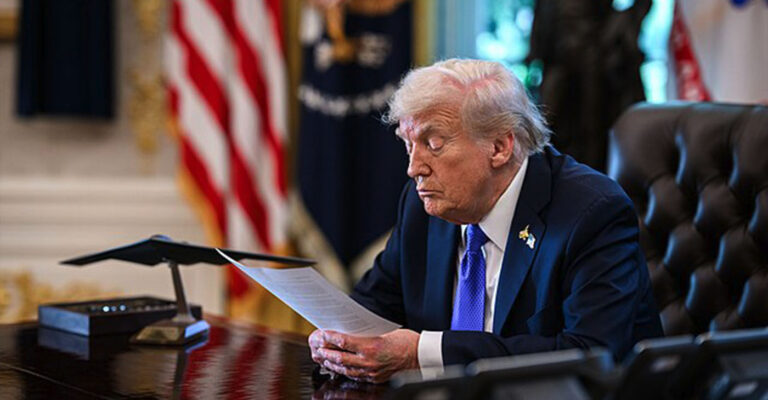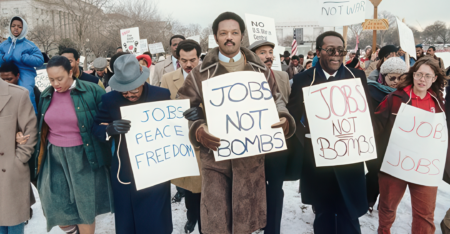By Stacy M. Brown
Black Press USA Senior National Correspondent
It always begins the same way. A whisper in Washington. A rumor in the corridors of power. This time, the story comes from TMZ. Donald Trump, the man who once branded himself the law-and-order president, is reportedly weighing whether to commute the sentence of Sean “Diddy” Combs. Diddy, the chart-topping mogul now sitting behind federal bars for violating the Mann Act, has served just over a year of his 50-month sentence. But in Trump’s world, time served often matters less than loyalty, money, or what a person can offer in return.
TMZ says the decision could come as soon as this week. The White House has denied it, calling the report fake news. Yet TMZ is standing firm, saying their story is accurate, that their sources inside Trump’s orbit have seen the wheels turning. It would not be the first time Donald Trump has used the Oval Office as a bargaining table for forgiveness. It would only be the latest in what investigators call a pattern of power traded for privilege.
A Pattern Written in Ink and Money
Since his return to office, Trump has used the presidential pardon not as a gesture of justice but as a reward for the faithful. A House Judiciary Committee report led by Representative Jamie Raskin laid bare the numbers. Nearly sixteen hundred criminals were freed or forgiven. More than one point three billion dollars in restitution wiped away. Victims and taxpayers are left holding the bill. The committee found that Trump’s decisions allowed white-collar fraudsters and tax cheats to keep what they stole, draining funds meant for victims of domestic violence, child abuse, and other crimes. Trump’s mercy, the report said, had little to do with repentance and everything to do with connections. Some of those pardoned had wealthy benefactors. Some had written checks to his campaign. Some had simply pledged their allegiance. Each case painted a picture of a president who viewed clemency as another currency.
Politics and Payoffs
Watchdog groups have tracked who benefited most. The Citizens for Responsibility and Ethics in Washington counted at least sixteen corrupt politicians granted clemency. They were former congressmen, mayors, and state senators who had traded public trust for cash and favors. NBC News listed a gallery of celebrities whose fame and fortune won them presidential grace. Reality stars Todd and Julie Chrisley. Rapper NBA YoungBoy. Former Illinois Governor Rod Blagojevich, who was once a contestant on Trump’s television show. In Trump’s America, the red carpet and the prison yard seemed to meet at the same gate.
A report from the Louisiana Illuminator revealed that many of Trump’s pardons broke the Department of Justice’s own rules, which require applicants to accept responsibility and pay restitution before consideration. Legal scholars described the system as “patronage pardoning,” a practice more suited to a mob boss than a president. Lee Kovarsky, a University of Texas law professor, called it “mafia stuff” — protection for those who serve the family and silence for those who might betray it.
The Price of Loyalty
Former Labor Secretary Robert Reich went a step further. In his analysis, he called it a “pay-to-pardon” operation. He pointed to names like Paul Walczak, a nursing home executive who stole millions from his employees. Walczak’s mother, a prominent Trump donor, attended a dinner at Mar-a-Lago where tickets ran into seven figures. Less than three weeks later, her son walked free, his four-point-four-million-dollar restitution erased. For those close to Trump, it was not justice. It was access.
The Diddy story fits perfectly into that world. Combs, once a friend turned political foe, supported Joe Biden in 2020. For years, Trump kept his distance. Now, sources say, Diddy’s lawyers are making their appeal to the only man who can unlock the cell door. If Trump signs that commutation, it will not be the first time he’s used mercy as theater. And if he doesn’t, the speculation alone will serve its purpose, a reminder that every favor, every friendship, every dollar still runs through him.
The Shadow of a Second Term
As the country watches and waits, the same question lingers. Who is freedom really for in Trump’s America? Victims have lost more than a billion dollars. Corrupt officials and celebrities have walked free. And a president who built his brand on deals continues to treat justice like another transaction. Like a novel about corruption, the setting may change — from Manhattan penthouses to federal prisons — but the story remains the same. Power has a price. And in Trump’s America, mercy is never free. In a quiet Washington office, Rep. Jamie Raskin put it plainly. “Whoever said crime doesn’t pay,” he warned, “has certainly not studied the Trump administration.”







